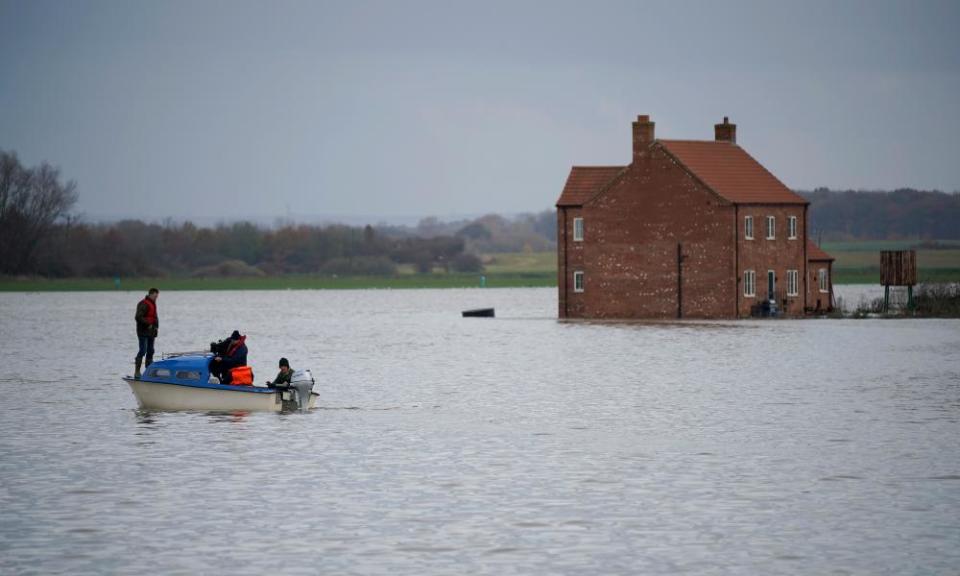We’ve already got a climate crisis – let’s not turn it into a culture war

Just 2% of the election debate was spent discussing the climate crisis. That includes the second Jeremy Corbyn gave it in his opening statement. When it was finally discussed – for a scant 45 seconds in the last 10 minutes – Corbyn was heckled after highlighting the effects our changing climate would have on the world’s poorest, with a jeer of “Oh, here we go!”. For those of us who work on raising awareness and finding solutions to the climate crisis, it was chilling. Corbyn himself looked shocked and seemed to gesture to the audience as if to say, “See what I’m working with?”
The urgency required to deal with our environmental crisis means this has to be the climate election
Implied in the audience intervention was the idea that caring about the plight of the world’s poorest is the preserve of tiresome, do-gooding snowflakes. Who cares about the people at the whims of climate change-related extreme weather events? They’re on the other side of the world anyway, right?
Thankfully, it is increasingly a minority of Brits who laugh off the climate crisis. Just this week Ipsos Mori noted that, when asked to list the most important issues facing Britain today, the environment and pollution had leapt up the chart, with 21% of respondents saying it was important to them. This is its highest recorded score since July 1990, a six-percentage-point rise from September, pushing this topic into fourth place (after Brexit, health and crime but above education, inequality, housing, the economy and immigration). Similarly, polling from YouGov at the end of last month shows a majority of voters say climate change will influence the way they vote. For under-25s, it’s near three-quarters.
But we clearly can’t rely on demographic changes to push the dial towards climate action. We need action now. Climate activists always say this, but what we do in the next few years really is vital. The urgency required to deal with our environmental crisis means this has to be the climate election, whether we’d rather be talking about Brexit or not.
The heckle seemed to derive from the view that the Labour leader is a bleeding-heart liberal who puts Brits last. Without wanting to suggest he should cave in to nationalist rhetoric at the first sign of resistance, Corbyn might well have avoided this by pulling the conversation back to a more domestic frame, skewering the prime minister on the recent floods, the Tories’ near-ban on onshore wind or their lack of action on cold, uninsulated homes. The Labour leader did move on to refer to “unusual weather patterns” and extreme air pollution in the UK, as well give a plug to Labour’s “green industrial revolution”, but it seemed almost like an afterthought. I’m sure in his post-debate debrief he was told this was a missed opportunity, and many of my fellow activists in the climate movement might be taking this as a sign that we need to be careful to always speak to domestic concerns first.
And yet, at the same time, we can’t keep sugar-coating the impact of our emissions on the rest of the world. We should be able to have a grown-up national debate on the climate crisis as an issue of global inequality, including the often exploitative and damaging role the UK has played. And why not have it at a point when voters are at their most engaged and politicised?

The sort of ambitious climate action we need in order to limit the damage globally is going to be difficult. It will require radical action against the big oil corporations – but it also means a change in our individual behaviour and routines too. We need drastically heightened levels of tree planting – it can’t just be a few more saplings here and there – and that’s going to mean more of us eating less meat. We need to cut flying, and driving too, and change our heaters and cookers. It’s vital we get these conversations right or they could go sour, fast.
And although comments like those made in the leaders’ debate are beyond the pale, changing hearts and minds will have to involve challenging parochial approaches to climate action too. We need to do this well. Protests for climate action have been extremely powerful in the last year, and will no doubt continue to be so throughout the election and into next year. Looking ahead, we may be better served by a community-organising approach, one that focuses more on personal relationships and, above all, listening to people across the UK, rather than simply shouting our campaign messages ever louder. Older people who may not identify with environmental protest groups need to be listened to, engaged with and have clearly explained to them the ramifications of inaction on climate change. Otherwise, jeers such as “Oh, here we go!” could be just the beginning of a climate crisis culture war, where eco-fascism rises to the surface.
This doesn’t mean simply agreeing to views we find abhorrent, but neither does it mean dismissing them in the way Corbyn’s “See what I’m working with?” gesture seemed to imply either. We need conversations, genuine ones where we listen to each other, and we need to be bold enough to go out and have them with people we disagree with. We can speak to a variety of values and approaches when it comes to climate change without pandering to banal nationalism. But we need to listen to them and – above all – involve them in the changes our society needs to avert climate catastrophe.
• Alice Bell is co-director at climate change charity Possible and is writing a book on the history of the climate crisis.

 Yahoo News
Yahoo News 